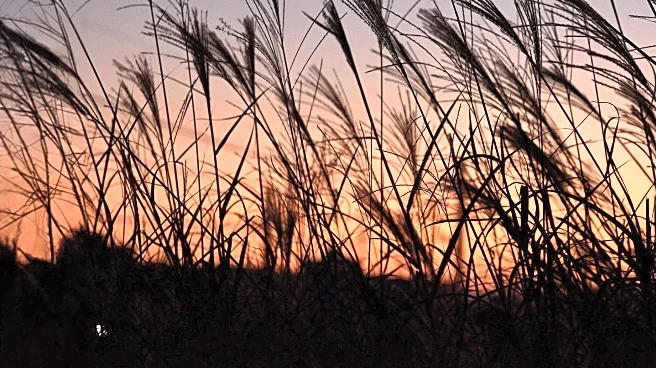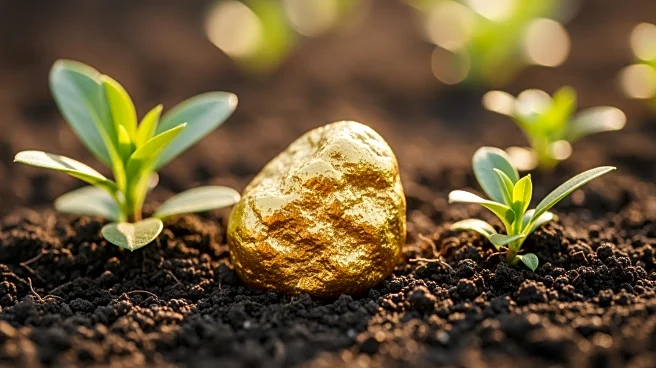What's Happening?
On Sunday, September 7, a full moon will rise, known as the Corn Moon, rather than the Harvest Moon. This distinction arises because the Harvest Moon is defined as the full moon closest to the fall equinox, which this year falls on September 22. Typically, the Harvest Moon occurs in September, but occasionally, as in 2025, it appears in October. The Corn Moon is named for its association with the corn harvest, a tradition linked to various Native American tribes. While a lunar eclipse will occur, it will not be visible in the U.S. due to daylight hours, but can be viewed online. The Harvest Moon is notable for the 'Harvest Moon Effect,' where the moon rises around sunset for several consecutive nights, providing extended evening light beneficial for farmers during the harvest season.
Why It's Important?
The designation of the Corn Moon instead of the Harvest Moon this year highlights the intricate relationship between lunar cycles and agricultural practices. The Harvest Moon's timing is crucial for farmers, historically providing additional light for harvesting crops. This phenomenon underscores the moon's influence on agricultural schedules and cultural traditions. The shift in the Harvest Moon's timing to October this year is a reminder of the variability in natural cycles and their impact on human activities. Understanding these cycles is essential for planning in agriculture and can influence cultural events and celebrations tied to the lunar calendar.
What's Next?
As the Corn Moon rises, those interested in lunar events and cultural traditions may look forward to the Harvest Moon in October. This shift may prompt adjustments in agricultural practices and cultural celebrations that typically align with the Harvest Moon. Observers and enthusiasts can anticipate the unique 'Harvest Moon Effect' next month, which will provide extended evening light. Additionally, the lunar eclipse, although not visible in the U.S., can be watched online, offering an opportunity for global engagement with this celestial event.
Beyond the Headlines
The occurrence of the Corn Moon instead of the Harvest Moon this year may prompt discussions on the cultural significance of lunar events and their historical ties to agriculture. It highlights the importance of understanding natural cycles and their impact on human traditions and practices. This event also serves as a reminder of the interconnectedness of natural phenomena and cultural heritage, encouraging a deeper appreciation for the role of the moon in shaping human history and activities.









